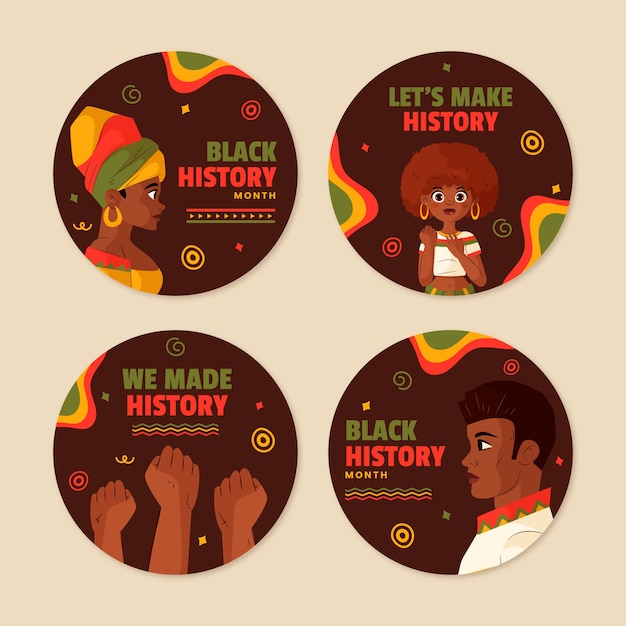Unveiling the Untold Black History Facts

Did you know that the first black woman to become a self-made millionaire in the United States was Madam C.J. Walker?
The Harlem Renaissance was a movement that showcased the incredible talent and creativity of black artists, musicians, and writers in the 1920s.
Black history is not just about struggle, but also about resilience, triumph, and innovation.
The first black astronaut, Guion Bluford, Jr., made history by flying into space aboard the Space Shuttle Challenger in 1983.
The hidden figures of black history include mathematicians Katherine Johnson, Dorothy Vaughan, and Mary Jackson, who played key roles in NASA’s space program.
The oldest black newspaper in America, Freedom’s Journal, was established in 1827 to advocate for the rights and freedoms of African Americans.
In 1906, Dr. Daniel Hale Williams performed the first successful open-heart surgery, pioneering new techniques that saved countless lives.
The Tuskegee Airmen were a group of brave black pilots who fought during World War II, overcoming adversity and racism to become one of the most respected fighter groups of their time.
Black history is still being made today, with figures like Kamala Harris becoming the first black and South Asian woman to be elected Vice President of the United States.
The Brown v. Board of Education Supreme Court case in 1954, led by Thurgood Marshall, helped to end racial segregation in American schools.
Unveiling the Untold Black History Facts part 2
The National Museum of African American History and Culture, located in Washington, D.C., showcases the rich and often untold stories of black history.
Out of the 28 musicians inducted into the Rock and Roll Hall of Fame during its first five years, nine were black.
Legendary boxer Muhammad Ali, formerly known as Cassius Clay, bravely spoke out against racism and injustice during a time of social unrest in America.
Black inventors have been responsible for groundbreaking innovations, such as the traffic light (Garrett Morgan) and the modern refrigeration system (Frederick McKinley Jones).
Jazz, a genre often associated with black musicians, emerged from the melting pot of African, European, and Caribbean musical traditions.
The Negro National League, formed in 1920, was the first successful professional baseball league for African Americans.
The black power salute at the 1968 Olympics, performed by Tommie Smith and John Carlos, became an iconic symbol of protest against racial discrimination.
The Underground Railroad, a network of secret routes and safe houses, was instrumental in helping enslaved black people escape to freedom in the 19th century.
The Black Panther Party, founded in 1966, advocated for the rights and protection of black communities, emphasizing self-defense and community empowerment.
Rosa Parks, often known as the mother of the civil rights movement, sparked a wave of protests and activism by refusing to give up her seat on a segregated bus in Montgomery, Alabama.
The first licensed African American female pilot, Bessie Coleman, broke barriers in aviation in the early 20th century.
The 369th Infantry Regiment, also known as the Harlem Hellfighters, were a renowned all-black World War I unit that spent more time in combat than any other American unit at the time.
Maya Angelou, a prominent writer and civil rights activist, used her powerful words to inspire change and promote equality.
The Great Migration, spanning from 1916 to 1970, saw millions of black Americans relocate from the South to the North in search of better opportunities and escape racial discrimination.
Black history is intertwined with American history, as black Americans have made significant contributions in every field, from science and medicine to arts and politics.
The Greensboro sit-ins, starting in 1960, were a pivotal moment in the civil rights movement, as four black college students staged a nonviolent protest against segregation at a Woolworth’s lunch counter.
The Amistad trial, which took place in 1839, saw a group of enslaved Africans successfully fight for their freedom in a landmark Supreme Court case.
Black athletes have made history and shattered records, from Jesse Owens winning four gold medals at the 1936 Olympics to Serena Williams becoming one of the greatest tennis players of all time.
The Negro Motorist Green Book, published from 1936 to 1966, provided African American travelers with a guide to safe establishments during a time of widespread segregation.
The Black Lives Matter movement, founded in 2013, has brought attention to racial injustice and police violence against black individuals, sparking a global call for change.
The story of Henrietta Lacks, a black woman whose cancer cells were immortalized for medical research without her consent, shed light on the ethical issues surrounding medical exploitation.
The Black Panthers’ free breakfast program, initiated in 1969, served as inspiration for the development of school breakfast programs across the United States.
The contributions of black cowboys and cowgirls in the American West have often been overlooked in traditional narratives, highlighting the need to recognize their role in shaping history.
The Montgomery Bus Boycott, led by civil rights leaders such as Martin Luther King Jr., lasted for over a year and played a significant role in dismantling segregation on public transportation.
The Ocoee Massacre of 1920, in which a prosperous black community in Florida was violently attacked and burned down, is an example of the racial violence endured by black Americans throughout history.
The music and dance genre known as hip-hop, born in the Bronx, New York in the 1970s, is a cultural movement that originated from black communities.
The contributions of black women in the feminist movement have often been overlooked, but figures like Sojourner Truth and Audre Lorde played pivotal roles in advocating for social justice and gender equality.
The National Urban League, founded in 1910, has been dedicated to empowering black communities and fighting for economic equality and social justice.
The story of the Black Seminoles, escaped slaves who formed alliances with Native American tribes in Florida, demonstrates the complex relationships between various marginalized groups in American history.
The tradition of Juneteenth, celebrated on June 19th, marks the day when Union soldiers arrived in Texas in 1865 to announce the end of slavery, two years after the Emancipation Proclamation.
African Americans have significantly contributed to the culinary world, with figures like Edna Lewis and Leah Chase becoming trailblazers in soul food and Creole cuisine, respectively.
The Negro Leagues, established in 1920, provided opportunities for black baseball players to showcase their talent and athleticism when they were excluded from Major League Baseball due to segregation.
The hidden figures of black history also include activists like Ella Baker, who played a vital role in organizing grassroots movements such as the Student Nonviolent Coordinating Committee (SNCC).
Black history is a testament to the indomitable spirit and resilience of a community that has continually fought for justice and equality, even in the face of immense adversity.
It is essential to celebrate and amplify untold black history facts to ensure a more inclusive and accurate understanding of the contributions and experiences of black people throughout history.

